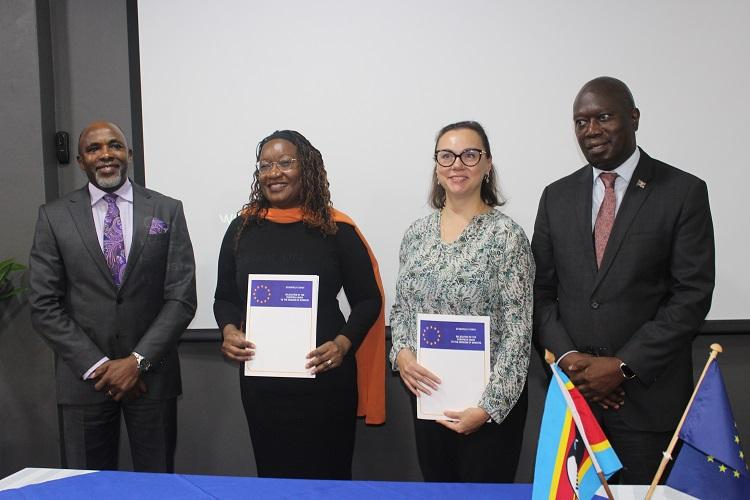EU comes through for GBV survivors and people with disabilities in Eswatini

EU Ambassador to Eswatini, Dessislava Choumelova, said this on 21 February 2024 in Mbabane during the launch of ‘Hlonipheka – Thriving For Dignity Programme’, an initiative aimed at promoting human rights and fundamental freedoms of survivors of gender-based violence (GBV) and those of persons living with disability in Eswatini. Amongst the major outputs of the programme is the creation of anti-tolerance to violence in communities, community advocacy on GBV and school dialogues.
This three-year programme worth SZL 10 million, which the European Union is funding in partnership with UNFPA, will cover all four regions of Eswatini thus restoring the dignity of thousands of survivors of GBV and persons with disability (PWD).
In her speech during the programme launch, Ambassador Choumelova said whilst sustainable development cannot be achieved without gender equality and a meaningful enhancement of women’s economic and political participation, the same was true for people living with disabilities.
She said the inclusion of PWD in the social and economic life of the country was key to concretise the principle of leaving no one behind.
The Ambassador said this project, which starts immediately and ends in 2027, was firmly on the right path given that His Majesty King Mswati III, in his speech from the Throne during the recent official opening of Parliament, also commended the allocation of resources to end GBV in Eswatini. She said the King also stressed the inclusion of people with disability.
“Investing in human capital and social inclusion, including the most vulnerable groups is a crosscutting theme in our programming in the country and it is along these lines that we worked together with UNFPA and in collaboration with the DPM Office to elaborate this programme. I would like to than both institutions for the positive and constructive exchanges that have led to the finalization of the programme,” said Choumelova.
She added that this EU support to eliminate GBV was not a once-off event in Eswatini. The Ambassador said the EU has, over the years, collaborated with the Government of Eswatini, civil society organisations and other partners to raise awareness and advocate for the promotion, protection of women’s rights and prevention of sexual offences and domestic violence in the country.
Also present during the occasion was the Principal Secretary in the Deputy Prime Minister’s Office, Melusi Masuku, who represented the DPM, Senator Thuli Dladla, members of the diplomatic corp and representatives of civil society organisations.



